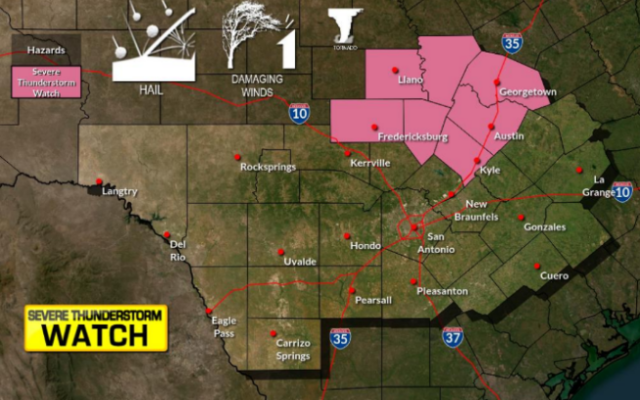Austin looking for $150k ‘climate resilience officer’

SAN ANTONIO (Texas News Radio) — The City of Austin is looking to pay someone $150,000 who can help it address climate change.
KXAN-TV reports the city council declared a climate emergency earlier this year where it directed the city manager to find items to include in the Fiscal Year 2021 budget to address greenhouse gas emissions.
The city manager had also been tasked with coming up with a climate awareness campaign by May 2020.
Austin’s Office of Sustainability and City Manager’s Office rolled out its first recommendations under this directive Monday, which included the hiring of a “chief climate resilience officer” to be filled within six months and have a salary between $100,000 and $150,000.
In a memo, the office laid out the expectations for a preferred candidate: “leadership experience in public administration, project management, and policy development and analysis. The ideal candidate for Chief Climate Resilience Officer would be uniquely qualified to address Austin’s specific risks, threats, and challenges: flooding, drought, extreme heat, and wildfire. Ideal candidates for Austin would also offer extensive experience in addressing long-term stressors like equity and socio-economic
development.”
That recommendation came after studying plans already put out by six other cities, including Dallas and San Antonio. The City of Austin consulted those cities as it works on its own plan.
Of those six, three have a ‘resilience officer’ in place — Dallas has one, San Antonio does not.
Dallas spent $500,000 on its climate plan, San Antonio spent $400,000 on its plan. Dallas paid for its plan through the city’s general funds, San Antonio paid for its plan using money from CPS Energy and its city budget.
Among the notes it said it learned through talking to these other cities, according to the memo:
- Since resilience planning is a complex process, significant resources are required. For many cities, funding is a continuous challenge due to short-term budget cycles and long-term implementation efforts.
- It is important to consider consulting services for technical expertise, community engagement, and reporting.
- Equity and social stressors should be kept front and center during the planning process, and community input should be incorporated throughout. Mapping can illustrate where climate hazards are likely to disproportionately affect communities.
- Because climate change can be politically contentious in certain organizations, using terms like “natural hazards” can be helpful in acquiring buy-in from various stakeholders.
- There are vast opportunities for public and private partnerships that range from workforce development strategies, to building resilience hubs in select facilities.
- For implementation, it is important that strategies are actionable and ensure an equitable distribution of resources. Before implementing strategies, it is important to define metrics for success and have a clear vision for the desired outcome.
More recommendations are expected from the Office of Sustainability by November.
You Might Also Like



